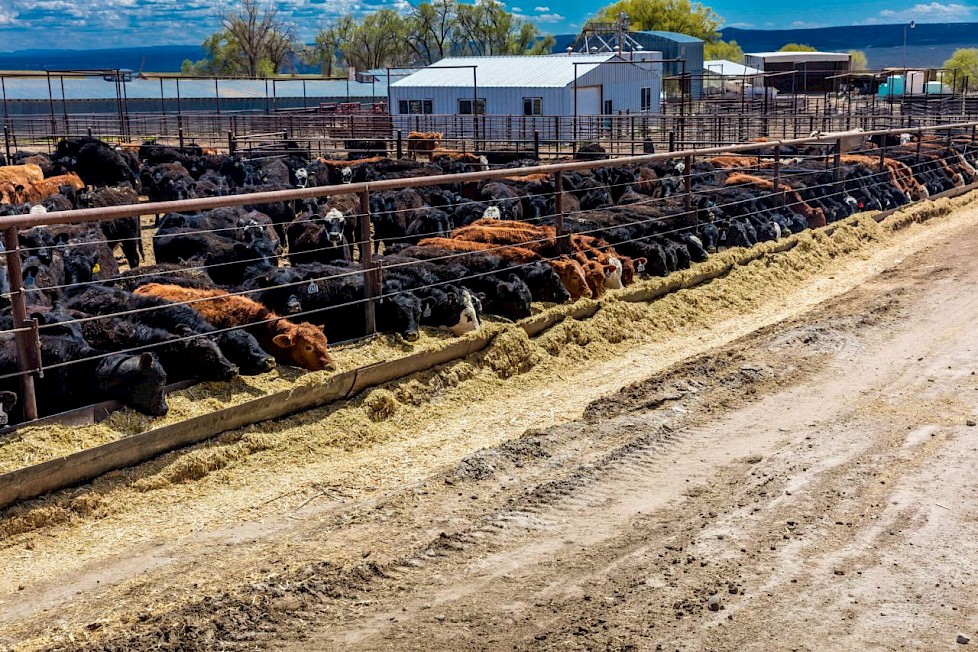Rethinking meat's role in climate and health strategies

The omission of meat-eating reduction from proposals in a UN roadmap to tackle the climate crisis and end hunger is “bewildering”, according to academic experts.
The group also criticised the UN Food and Agriculture Organization’s report for “dismissing” the potential of alternative proteins, such as plant-based meat, to reduce the impact of livestock on the environment.
In a commentary published in the journal Nature Food, experts said the FAO’s failure to include a methodology on how the 120 actions it did support were chosen, or a list of authors, was “concerning and surprising”.
They called for the next instalments of the roadmap to be more transparent so its recommendations could be assessed against the many scientific studies that have found reducing meat consumption in rich nations would benefit the climate and human health. The FAO said the experts’ article did “not make a proper assessment of the report and its ideas”.
In October, the Guardian revealed claims made by former FAO officials that its leadership censored and undermined them when they highlighted how methane from livestock was a major contributor to global heating. Scientists have shown that the international climate target, of 1.5C above pre-industrial levels, cannot be met without major changes in food production. Animal farming produces 12%-20% of total global greenhouse gas emissions and uses 83% of farmland to provide 18% of calories.
The FAO roadmap was published at the Cop28 climate summit in December and accepts that diets “absolutely must [change] for human and planetary health”. But its 120 actions do not include reducing meat and dairy consumption in nations where most people already eat unhealthy amounts. Instead, many of the FAO’s recommendations are to intensify the efficiency of animal farming techniques.
“It’s very striking: the FAO doesn’t include one of the clearest interventions that would help meet both environmental and health targets,” said Cleo Verkuijl, of the Stockholm Environment Institute US and one of the eight authors of the commentary from academic institutions in the US, the Netherlands and Brazil.
“Also really surprising is the fact that the FAO completely dismisses alternative proteins,” she said. These had been shown to have far smaller environmental impacts than conventional meat but the FAO claimed, without providing evidence, that plant-based meats had “nutritional deficiencies”, the experts said.
A report from the UN Environment Programme (Unep), published in December, said “alternatives to animal products such as meat and dairy may contribute to significantly reducing the environmental footprint of the current global food system”.
Another author, Prof Matthew Hayek, of New York University, said: “The FAO fails to present any methods or concrete data behind their claim that incremental tweaks in farmed animal management alone can meet our climate goals.
“With all that food systems are trying to accomplish in the next couple of decades, there are a lot of needles that need to be threaded: increasing food provision while decreasing greenhouse gas emissions, and increasing health and nutrition while decreasing disease risks, foodborne illnesses and pandemics,” he said. “Across the board, [cutting animal product consumption] widens the eye of those needles. To disregard that major opportunity for multiple co-benefits across climate, food security and health is just bewildering, and their reasons for omitting that are opaque.”
The experts also criticised the FAO report for its failure to mention the “One Health” approach, which connects human, animal and environmental health, despite the FAO being part of an initiative with the World Health Organization, the World Organisation for Animal Health, and Unep to support the implementation of the approach.
“Some of the FAO roadmap’s proposed interventions, such as transitioning from beef to chicken and intensifying animal agriculture, could maintain or even significantly increase risks of antimicrobial resistance and/or zoonotic disease,” the authors said.
The roadmap acknowledges these risks and says productivity increases should be achieved while avoiding “adverse consequences stemming from the concentrated housing of animals coupled with excessive antibiotic use”. But this may be challenging, the authors said: “Shifting to more plant-based foods is a promising solution.”
David Laborde, the director of the FAO’s agrifood economics and policy division, rejected the article’s criticism. “We stress the importance of dietary shifts from the first pages of the report, underscoring how this issue is often overlooked.” Dietary change is mentioned eight times in the 50-page summary report but reducing meat or dairy consumption is not mentioned.
“The changes in diets should not be oversimplified but based on science and evidence,” he said. “Importantly, meat is only one of the elements in the evolution of diets and limiting discussions to the meat issue is not helpful.”
Laborde said the report did not dismiss alternative proteins: “We just firmly believe that betting on one miracle solution to solve the problem is not realistic.” He said a methodology and author list, and the term “One Health”, were in the full version of the report, which has not been published online.
You can return to the main Market News page, or press the Back button on your browser.

